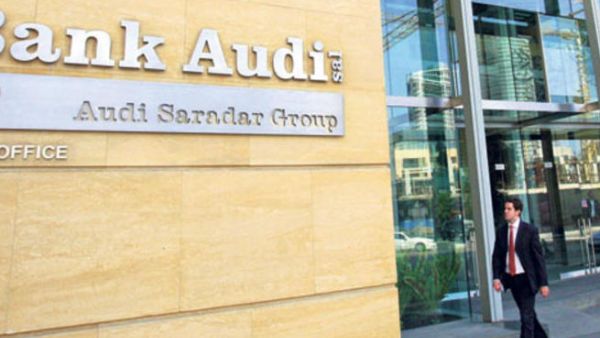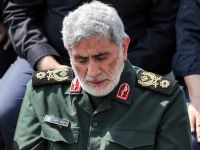A leading Lebanese bank vehemently denied Thursday an allegation by a local newspaper that its Turkish subsidiary is financing ISIS.
Al-Akhbar newspaper alleged in an article published Thursday that Washington has asked the Turkish authorities to look into the operations of Bank Audi, amid concerns over possible money laundering operations for ISIS.
But Bank Audi said in a statement that the newspaper’s report on a meeting held between Daniel Gazer, assistant secretary for the U.S. Department of the Treasury, and the board of directors of theAssociation of Banks in Lebanon was “completely inaccurate.”
Al-Akhbar’s report claimed that American authorities raised during the meeting their concerns about operations aimed at financing ISIS via banks in Turkey and Iraq, including Bank Audi’s Turkish branch Odea Bank.
“We wish to confirm that this information is completely inaccurate and does not reflect the contents of the discussions during that meeting, during which no mention of Bank Audi’s entire Turkish subsidiary [Odea Bank] was made,” Bank Audi’s statement said.
It added that the subsidiary was never asked by Turkish authorities to take any specific measure with regard to combating money laundering and terrorist financing, as alleged the newspaper.
“Bank Audi, as well as its subsidiaries in Lebanon and in all the countries it is present in, applies the highest standards of banking ethics and practice, and complies with all applicable domestic and international regulations in all its countries of presence,” the bank said.
The Association of Banks in Lebanon also voiced its solidarity with Bank Audi, denying any wrongdoing by the Lebanese bank in Turkey.
“Lebanese banks, including Bank Audi, have implemented successful expansion plans outside Lebanon to accompany the development of the Lebanese abroad and maintain and strengthen their contacts with Lebanon. This has earned the appreciation of the Lebanese people, both residents and expatriates, as well as the respect of regional and international monetary authorities,” ABL said in a statement.
It stressed that Lebanese banks in Lebanon and abroad have applied and would continue to apply the highest standards of banking ethics and practice and comply with all applicable domestic and international regulations.
The Central Bank and the Special Investigation Commission check all complaints about suspected money laundering or terrorist funding.
The SIC recommends the lifting of banking secrecy on any suspicious accounts.
Since the SIC’s creation in 2001, the prosecutor’s office has frozen numerous suspected accounts.








